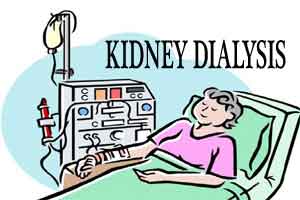- Home
- Medical news & Guidelines
- Anesthesiology
- Cardiology and CTVS
- Critical Care
- Dentistry
- Dermatology
- Diabetes and Endocrinology
- ENT
- Gastroenterology
- Medicine
- Nephrology
- Neurology
- Obstretics-Gynaecology
- Oncology
- Ophthalmology
- Orthopaedics
- Pediatrics-Neonatology
- Psychiatry
- Pulmonology
- Radiology
- Surgery
- Urology
- Laboratory Medicine
- Diet
- Nursing
- Paramedical
- Physiotherapy
- Health news
- Fact Check
- Bone Health Fact Check
- Brain Health Fact Check
- Cancer Related Fact Check
- Child Care Fact Check
- Dental and oral health fact check
- Diabetes and metabolic health fact check
- Diet and Nutrition Fact Check
- Eye and ENT Care Fact Check
- Fitness fact check
- Gut health fact check
- Heart health fact check
- Kidney health fact check
- Medical education fact check
- Men's health fact check
- Respiratory fact check
- Skin and hair care fact check
- Vaccine and Immunization fact check
- Women's health fact check
- AYUSH
- State News
- Andaman and Nicobar Islands
- Andhra Pradesh
- Arunachal Pradesh
- Assam
- Bihar
- Chandigarh
- Chattisgarh
- Dadra and Nagar Haveli
- Daman and Diu
- Delhi
- Goa
- Gujarat
- Haryana
- Himachal Pradesh
- Jammu & Kashmir
- Jharkhand
- Karnataka
- Kerala
- Ladakh
- Lakshadweep
- Madhya Pradesh
- Maharashtra
- Manipur
- Meghalaya
- Mizoram
- Nagaland
- Odisha
- Puducherry
- Punjab
- Rajasthan
- Sikkim
- Tamil Nadu
- Telangana
- Tripura
- Uttar Pradesh
- Uttrakhand
- West Bengal
- Medical Education
- Industry
Union Health ministry to offer peritoneal dialysis facility to kidney patients at their homes

Given that peritoneal dialysis avoids the substantial costs of infrastructure set up and maintenance and staffing, reduces the demand on the healthcare system and offers patient autonomy, the inclusion of peritoneal dialysis in the ambit of the National Dialysis Program is being considered
New Delhi: In a first, the Union Health Ministry is planning to offer peritoneal dialysis facility to kidney patients at their homes under the Pradhan Mantri National Dialysis Programme (PMNDP).
The programme was launched in 2016 to provide free dialysis care to the patients in district hospitals.
The aim is to achieve equity in patient access to home-based peritoneal dialysis and reduce the overall cost of care to the system by focusing on efficient leveraging of resources, a senior health ministry official said.
Peritoneal dialysis filters the blood in a different way than the more common blood-filtering procedure hemodialysis.
It uses the lining of the abdomen and a cleaning solution called dialysate to cleanse the blood.
Read Also: Karnataka: Aster CMI Hospital launches first Dialysis and Chemotherapy Day Care Centre
According to a draft proposal, the ministry will provide peritoneal dialysis (PD) facility to the patients at their homes.
"Dialysis programs around the world are developed on a combination of haemodialysis and peritoneal dialysis.
"Given that peritoneal dialysis avoids the substantial costs of infrastructure set up and maintenance and staffing, reduces the demand on the healthcare system and offers patient autonomy, the inclusion of peritoneal dialysis in the ambit of the National Dialysis Program is being considered," the official said.
The Centre announced the National Dialysis Program in the 2016 budget.
The first phase of this program envisaged setting up of haemodialysis (HD) centres in all districts, which is being implemented.
Peritoneal dialysis (PD), which is another form of standard dialysis therapy, was not included in this phase.
Read Also: Free dialysis services will be provided in Gorakhpur hospitals: UP CM
PD allows therapeutic intervention at home (or nearest to the community) which in turns reduces overall out-of-pocket expenditure by saving the wage loss of the patient and his attendant, which was not possible in HD patients requiring to travel to the district level twice/thrice weekly.
Moreover, young children especially those below five years are often unsuitable for HD.
Such patients are preferably initiated on PD, home-based PD is better suited to their flexible lifestyle, including education, schooling and other childhood activities, the official explained.
The principles of providing PD which would ensure an efficient and cost-effective PD program without compromising quality are through reduction of procurement costs and improving patient and technique survival so that patients are not forced to transition to HD, the official said.
Medical Dialogues Bureau consists of a team of passionate medical/scientific writers, led by doctors and healthcare researchers. Our team efforts to bring you updated and timely news about the important happenings of the medical and healthcare sector. Our editorial team can be reached at editorial@medicaldialogues.in.


